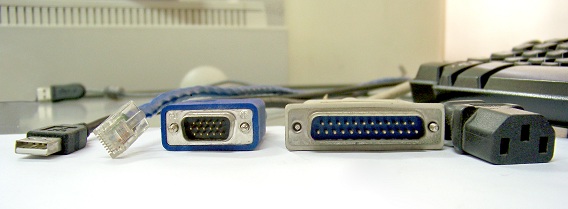Basic Computer Troubleshooting
Basic computer troubleshooting techniques can help alleviate any frustration when facing a computer problem. Many people deal with computer issues regularly, sometimes they are simple to solve and sometimes theyre not, however, no matter what it is, they always cause headaches and frustrations simply because they happen. By understanding and applying some quick troubleshooting techniques, you may be able to quickly solve your problem and continue with your work as though nothing ever happened. I will teach you different case scenarios for different situations that can help you fix those pesky computer problems when you encounter them.
Knowing basic computer troubleshooting techniques is the key to help you fix virtually any computer problem. It will save you time and money because you can be confident that you'll know what to do to fix them. Read the scenario below and learn this first valuable lesson. (If you'd like to skip directly to the basic computer troubleshooting scenario links, scroll down or click here).
Basic Computer Troubleshooting Scenario
Let's say you're working on a school project on your computer for a presentation you have in two days. Although you know the deadline is in a couple of days, you think, "no problem! I'm almost done anyways", so you decide to call it a day, and save the file in your USB memory to finish it the next day.
You notice your room is messy so you decide to clean it up. You actually do a great job cleaning. There isn't a single spot you didn't clean and the room is spotless.
Next day comes and you're ready to continue working on your project to finish it and have it done for the following day. You try to start your computer and nothing happens. But why? What do you do now? You barely know how to operate some programs in your computer and you have no idea what to do now.
There are a number of options to facilitate this problem at hand. For example you can go to the library or any other public place to use their computers and finish the project. Though this would not fix your problem it would definitely save the day, however, you would be wasting time and gas to get to the place.
You can also call a tech to come to your house. After all, you have a project to finish before tomorrow comes. This option would fix your computer problem and save the day, but it will take time for the technician to get to your house and you will have to pay him money for fixing your problem and coming to your house.
Because the second option will fix your computer, you choose to call the tech to resolve your problem. So what happens next?
It is time for your first basic computer troubleshooting lesson. Ready?
Always Check Your Connections First!

What just happened? Lets continue with the story. The computer tech was busy that day so it took her a while to get to your house. When the tech finally arrives at your home, she asks a few questions, goes to the computer, checks the connections and discovers that the computer's power cord was unplugged.
why? Because she knew to always check the connections first. The tech now plugs it back in, starts the computer up and problem solved.
Remember when you cleaned the room? You guessed it. You unplugged the cable without realizing and now you must pay the price. You wasted valuable time and money to fix a problem that could've been avoided in the first place. If only you wouldve known.
The good new is, this doesnt have to happen to you. Accidents can always happen, but if you know what to do, you don't have to worry. This is why youre here! so check out the scenarios below in this basic computer troubleshooting section and learn what to do if it happens to you.
Software:
My Computer Is Running Too Slow
As frustrating as this may be, there is hope for your computer. Find out what slows down your PC and apply the solutions shown here.
I Am Not Getting Internet Connection
Never assume the computer is damaged just because it doesn't seem to be working. The first thing you need to do is to check that your network cable is connected...
Hardware:
My Keyboard Stopped Working
Did your keyboard stopped working? There are a few things you can check to troubleshoot the problem. What kind of keyboard are you using? Findout why.
My Computer Will Not Boot
Here is a tip that you can follow when checking for power: as a rule of thumb, always check the connections...
My Speakers Are Not Getting Sound
If you're not getting sound from your computer,the first thing you should do is to make sure that your speakers are not set to mute or that the volume is not all the way down...
Return from basic computer troubleshooting to home page

New! Comments
Did you find this page useful? Leave your comments below.